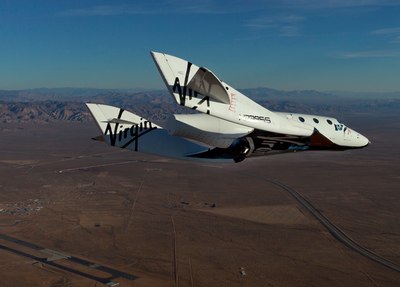Space law and the new era of commercial spaceflightby Christopher J. Newman and Ben Middleton
|
| Developments in space tourism may well require litigators to face novel questions regarding how travelers who commit criminal activity should be dealt. |
There are numerous activities that potentially require additional regulation and legal control. The paradigm shift from state actors to individuals and companies means that there is some terrestrial precedent for litigators to draw upon. The body of accepted commercial and private international law that currently regulates international trade and carriage of goods over land, air, and sea is readily adaptable for activities such as the placing commercial telecommunications satellites into orbit. Whether individual states see the need for additional legislative provision depends upon the extent to which private companies are able to self-regulate any disputes that may arise.
While transporting goods draws upon established private international law for its regulation and enforcement, developments in space tourism may well require litigators to face novel questions regarding how travelers who commit criminal activity should be dealt. This encompasses some theoretical discussion on in terms of what type of behavior should be viewed as criminal, how this behavior should be dealt with and, if necessary, which court should have jurisdiction in the matter. Space travelers have, in the vast majority of cases, been drawn from highly trained military officers and scientists. Within the next few years, British entrepreneur Richard Branson and his Virgin Galactic service, among other companies, promise to deliver suborbital flights to private individuals for the relatively low price of $200,000 or less. The criterion for being a space traveler now revolves around one simple question: can you afford to pay? This new, commercial criteria means that it is no longer sufficient to rely on military discipline to ensure good conduct amongst space travelers; space lawyers may need to draft a code of conduct covering both the essential health and safety requirements while also preventing regular criminality ranging from anti-social behavior through to the prevention of suborbital acts of terrorism.
It is not only the errant space tourist that may be subject to criminal sanctions. There are numerous philosophical questions surrounding the environmental impact of humanity’s exploration and exploitation of outer space that will determine both the legislation and related enforcement mechanisms of future activity. Should humankind view outer space as an intergalactic dustbin whereby all manner of toxic and nuclear waste can be disposed? Should there be an environmental duty of care imposed on those who travel to other celestial bodies? Whatever answer is given, the next and most relevant question is how is such activity to be regulated or even prohibited? It may be that the first space criminal is not a space tourist but more likely a company seeking to exploit resources in a way which society views as unacceptable. The first space felony may be more sub-prime than suborbital.
Another key event that causes the space lawyer to pause for thought is the second launch of the X-37B reusable, robotic spaceplane. This was developed by the US Air Force to perform a variety of tasks in earth orbit and has led to critics voicing renewed fears about the potential weaponization of space. The craft, of itself, provides little evidence of a new military direction. How long space can remain weapns-free is, however, a legal and political question that will need addressing in a short space of time. The X-37B may not herald the weaponization of space but it does see a new degree of engagement with space by the military.
| The first space felony may be more sub-prime than suborbital. |
Traditionally, state-sponsored activity in space has been managed through international cooperation and self-regulation. The United Nations Committee on the Peaceful Uses of Outer Space (COPUOS), founded at the outset of human space exploration, has a number of treaties established within the corpus of international law dealing with issues such the activities of states in relation to the Moon, liability for space objects, and the procedures for the rescue of astronauts. In relation to military activity in space, however, cooperation gives way to political expediency, and the recent statement by a senior Chinese military official that military competition has moved into space is instructive in this respect. Space lawyers may well find, as have their terrestrial counterparts, that an established body of international law is not sufficient to prevent states from pursuing their own aggressive, extraterrestrial agenda.
The Obama vision of public and private sectors reaching hand in hand for the stars means that space law can justifiably sit alongside other mainstream legal subjects as an area of legitimate inquiry. The issues that face space lawyers are as diverse and novel as the opportunities inherent in space exploration. Like any area of legal inquiry, however, the key to successfully establishing a recognized system of regulation and enforcement is in formulating a system that encourages investment and risk-taking without completely forsaking the prosaic detail which can save lives both in outer space and here on earth. One thing is for certain: extraterrestrial litigation is set to sit alongside any technological developments on the next stage of humanity’s journey into space.
